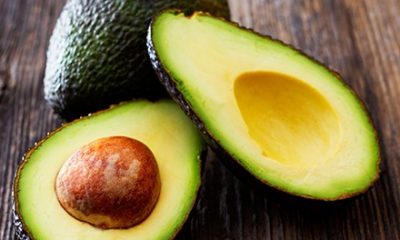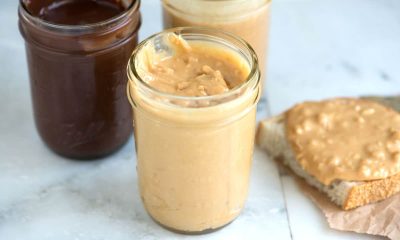Health
Contraindications and side effects of Trazodone
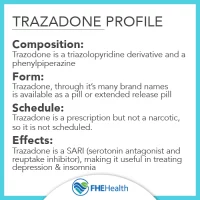
Discover the Contraindications and side effects of Trazodone.
Trazodone is used in a wide variety of disorders, although it is an antidepressant.
Being depression one of the most prevalent mental disorders worldwide and one of the major causes of disability, its treatment is a matter that the scientific community has taken into account for many years.
The suffering it generates requires sometimes immediate attention since it is one of the disorders with the highest risk of suicide and that generates the most pain both for the person and for those around him.
The treatment of depression is carried out from different areas, one of them being psychopharmacology.
One of the drugs used in the treatment of depression is trazodone, which we are going to talk about in this article.
Trazodone: what type of substance is it?
Trazodone is a psychotropic drug classified within antidepressants, substances that generate a neurochemical change at the brain level, causing alterations in the levels of certain neurotransmitters, specifically serotonin.
Among antidepressants, it is part and is the main representative of the group of serotonin-2A antagonists and reuptake inhibitors or SARIs, a type of atypical antidepressant.
This drug was designed in Italy in 1966 under the assumption that depression could be based on the existence of low thresholds regarding the perception of pain and suffering, being the product of the lack of integration of aversive experiences.
Trazodone has proven to be an efficient and effective drug in the treatment of depression, reducing passivity and inactivity, as well as the discomfort and suffering associated with said ailment, and facilitating an increase in mood.
However, in addition to this, it also has an anxiolytic and tranquilizing action.
This substance is considered a second-generation antidepressant, along with specific serotonin reuptake inhibitors (SSRIs), with which it shares part of its mechanism of action, and different dual antidepressants.
Trazodone is sometimes considered to be dual as it has two different effects, although they focus on the same neurotransmission system, compared to the rest, and in addition to an antidepressant effect, it also has calming effects.
How does it work? Mechanism of action of the drug
As we have indicated previously, trazodone is classified as SARI, having a somewhat special mechanism of action among the rest of antidepressants.
Trazodone acts at the serotonergic system level (like most antidepressants) in two specific ways.
In the first place, this substance produces a blockage of brain serotonin reuptake, in such a way that said neurotransmitter remains in the synaptic space for a longer time.
This supposes that it has an agonist effect on the synthesis and maintenance of serotonin at the brain level, it increases its levels (which are decreased during the depression and this is something that correlates with the decrease in the mood).
The aforementioned mechanism of action is the one used by SSRIs, which is why these and trazodone are related and sometimes the latter is included among the first.
However, trazodone has a second effect that differentiates it from other drugs, and that seems contrary to the previous mechanism of action.
And it is also that it acts as an antagonist of serotonin 5-HT2A receptors, preventing or hindering these receptors from being activated.
This second aspect is what makes trazodone have a slightly different profile and effects than other antidepressants.
Regarding its interaction with other neurotransmitter systems, it does not present great anticholinergic effects, something that has made this drug a better option than tricyclics (although the doses must also be regulated) in patients with cerebrovascular and cardiac pathology and dementias.
However, it must be taken into account that it can generate arrhythmias.
It also has a minor effect on the adrenergic (blocking some receptors) and histaminergic systems, something that can lead to the generation of side effects.
Main indications
The main indication for trazodone is obviously, as an antidepressant that it is, major depression. Its effectiveness is also high in those depressions that appear together with anxiety symptoms.
Its clinical utility has also been observed in other disorders in which there are components of anxiety or that are based on it, such as generalized anxiety disorder, Obsessive-Compulsive Disorder, or bulimia.
In addition to this, it has also been observed to be useful for the treatment of substance addictions, being a good alternative for patients with withdrawal syndrome to benzodiazepines, and in the treatment of alcoholism (including the presence of delirium tremens).
Another of its indications is insomnia, which is effectively reduced by increasing sleep time without greatly affecting the deep sleep phase.
Although in general, most antidepressants can have the presence of erectile dysfunction or ejaculation problems as a side effect, this effect does not usually occur in trazodone, which seems to generate an increase in libido and is even used as a treatment indicated in erectile dysfunction.
Finally, trazodone has been applied (largely for its relaxing properties) in some cases of schizophrenia, motor problems such as Gilles de la Tourette syndrome, the presence of manic episodes in bipolar disorder, and the behavioral disorders of Alzheimer’s. although a greater amount of study is required regarding the latter.
On a medical level, it has also been used as a sedative in HIV-infected patients and diabetic neuropathies, as well as in other disorders that cause pain such as fibromyalgia. It has a very slight effect at the level of muscle relaxant.
Side effects and contraindications
Trazodone is a very useful drug that has been used in multiple pathologies and disorders, both mental and medical.
However, it can have undesirable consequences in the form of side effects and is even contraindicated in some situations and pathologies.
Secondary symptoms, sedation, and fatigue, the presence of headaches, nausea, and vomiting, gastric disturbances (diarrhea or constipation), appetite disturbances, sweating, tremors (which may lead to seizures in some cases), are common. ringing, numbness, and vision problems.
In some cases, it can also cause chest and muscle pain, altered consciousness, breathing problems, and arrhythmias. Like other antidepressants, trazodone can also contribute to the genesis of suicidal ideation in the first moments of use.
Although, unlike other antidepressants, it does not seem to generate contributes to improving cases of erectile dysfunction or ejaculatory problems, the use of trazodone has been observed and associated with the appearance of priapism, erections that do not disappear on their own. alone and that cause pain to those who suffer from them (which may require urgent and even surgical treatment).
Although it is sometimes used in dementias and has a lower risk than tricyclics of generating heart problems, it requires a high degree of caution in its use and dosage carefully prescribed by the doctor, since it can generate arrhythmias.
It is contraindicated in patients who have just suffered a heart attack, as well as in those with liver or kidney disease.
Caution should be exercised in subjects with bipolarity because if the medication is not regulated, the consumption of trazodone can cause a shift from depressive to manic phase.
It is also contraindicated in people who have suffered from priapism or have Peyronie’s disease.
Finally, it must be taken into account that trazodone can be excreted in breast milk and transmitted through the placenta so that pregnant and lactating women have contraindicated its use.
Health
15 good reasons to drink lemon juice in the morning on an empty stomach
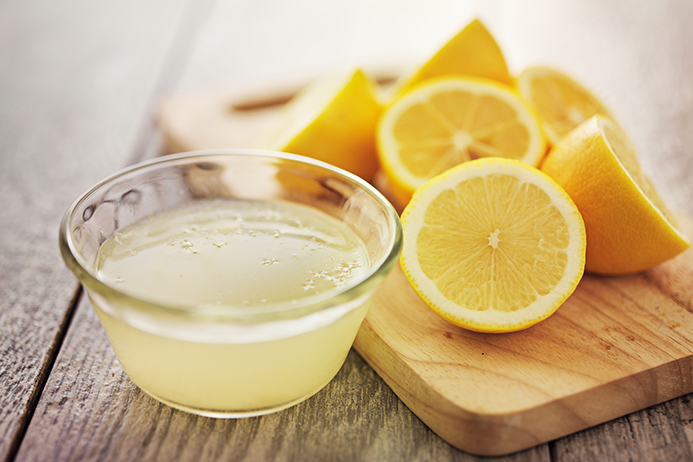
Discover the 15 good reasons to drink lemon juice in the morning on an empty stomach.
Lemon is one of the most frequently and widely used citrus fruits.
Its popularity is due to its scent and refreshing taste.
Its aroma makes it an ingredient of choice in many recipes and the composition of perfumes.
It also accompanies a large number of drinks, including tea and cocktails, it can also be served as fruit juice.
Not only is lemon used for its aromatic qualities, but also its therapeutic dimension.
Rich in vitamin C, lemon indeed has formidable therapeutic virtues: its Antiviral and antibacterial properties as well as its ability to stimulate the immune system are widely recognized.
One of the most common ways to reap the benefits of lemon is by squeezing the juice.
Lemon juice stimulates digestion and has a detoxifying action.
It also promotes drainage of the liver and thus improves digestion.
By its ability to boost metabolism, lemon juice is an effective way to lose weight.
If you want to lose weight, drinking lemon juice in lukewarm water every morning on an empty stomach gives fabulous results.
But that’s not all, nutrition specialists at the Edison Institute of Nutrition have compiled a list of the main benefits of consuming lemon juice mixed with lukewarm water on an empty stomach:
1. An excellent source of vitamin C, lemon juice protects the body by strengthening the immune system.
2. Drinking lemon juice in lukewarm water every morning on an empty stomach helps maintain pH balance in the body.
3. Thanks to its antibacterial properties, lemon juice helps fight infections.
4. Has a detoxifying action.
5. Promotes digestion.
6. Besides vitamin C, lemon is also an excellent source of potassium, calcium, phosphorus, magnesium, etc.
7. Helps fight colds.
8. Lemon water is a well-known remedy for dealing with different skin problems like acne, rashes, wrinkles, or dark spots.
9. Mixed with lukewarm water, lemon juice stimulates digestion, boosts metabolism, and thus allows you to lose weight quickly.
10 Lemon juice is also very effective in removing toxins that have accumulated in the liver.
11. The anti-inflammatory properties of lemon help fight infections of the respiratory tract, sore throat, and inflammation of the tonsils.
12. Rich in electrolytes, lemon juice effectively hydrates the body.
13. Drinking lemon juice mixed with lukewarm water decreases muscle and joint pain.
14. Lemon juice in lukewarm water promotes good dental hygiene because it helps decrease dental pain and prevent gingivitis.
15. Drinking lemon juice in lukewarm water stimulates digestion and regulates intestinal transit.
SOME QUESTIONS / ANSWERS AND COMMENTS :
Q. Out of curiosity… my cousin is allergic to lemon. Does lime have the same virtues?
A. Yes, you can substitute lemon for lime.
I had to stop drinking lemon water for a month because I was sick. The joint pain I got rid of before all came back.
So I started drinking lemon juice in lukewarm water again every morning on an empty stomach.
Now after a week, and it’s true, my pain in my knees is gone !!!!
It’s amazing! Lemon is indeed very alkalizing and promotes the elimination of acids.
Also, it contains a lot of vitamin C, which is good for the joints.
Some people suffer from vitamin C deficiency and need to be sure to find it in their diet or supplements.
Q. After drinking lemon juice in lukewarm water in the morning on an empty stomach, how long should I wait to eat?
A. I recommend that you wait 20 to 30 minutes before eating.
Q. Why does lemon juice need to be mixed with lukewarm water? Is lemon juice also beneficial in cold water?
A. Lukewarm water stimulates digestion and the liver.
Coldwater does the opposite, it blocks digestion.
So it is best to consume lemon juice in lukewarm water.
Q. How many lemons should you squeeze in the morning to benefit from the benefits of this fruit?
A. I suggest squeezing half a lemon in a large glass of lukewarm water (25cl).
Lemon juice is rich in vitamin C and antioxidants.
Citric acid and vitamin C promote the dissolution of gallstones, their elimination, as well as the clearing of the bile ducts.
Lemon juice has been used for centuries in the treatment of kidney stones and gallstones.
Lemon also has antimicrobial properties that help reduce gallbladder infections and relieve pain.
The pectin in lemon juice relieves bloating, nausea and pain.
Besides, lemon juice helps reduce the production of cholesterol by the liver.
Q. Hello. I have a question: I have thyroid problems, can I drink lemon juice in lukewarm water?
A. Yes. You can drink lemon juice in lukewarm water if you are suffering from thyroid problems.
Q. I take medicine on an empty stomach every morning for a thyroid problem. Should I take this medicine before drinking lemon water or after?
A. Since lemon water is absorbed relatively quickly by the body, I recommend that you take your medicine soon after drinking the lemon water.
Joint pain is associated with poor digestion and allergic reactions to certain foods.
Lemon water promotes digestion and the elimination of toxins.
If your teeth are prone to demineralization and are very sensitive, I advise you to drink lemon water through a straw.
Health
Mosquito bite: The Miracle Cure Against It
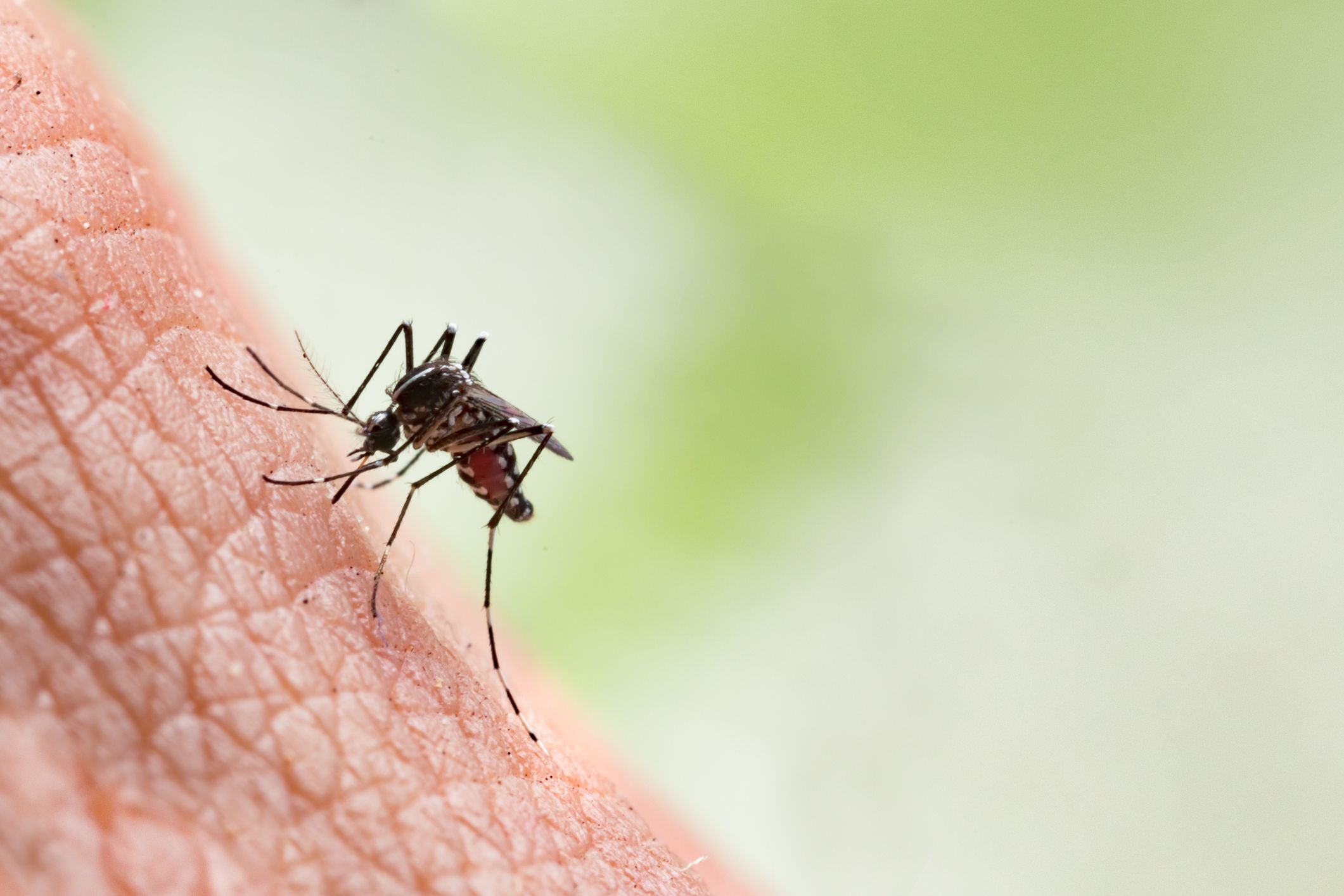
Discover The Miracle Cure Against Mosquito Bite.
Have you been bitten by a mosquito again?
They have the gift of stinging us when we spend a quiet evening on the terrace!
And then, hello the itching!
We only want one thing, and that is to scratch ourselves to the point of blood. It’s super annoying!
Fortunately, my grandmother gave me her natural remedy to quickly relieve a mosquito bite.
The miracle trick is to apply a paste of baking soda and witch hazel water. Look :
What you need
- baking soda
- witch hazel water
- cup
How to do
- Put three teaspoons of baking soda in a cup.
- Pour a teaspoon of witch hazel water
- Mix to obtain a paste.
- Apply the paste to the bite.
- Leave on.
Results
And there you have it, thanks to this remedy, you have stopped the itching of mosquito bites in their tracks 🙂
Easy, fast, and efficient, isn’t it?
It is a simple treatment that makes the sting deflate and disappear quickly!
This remedy is completely natural and very gentle. It is ideal for the fragile skin of children and babies.
And you don’t even need Apaisyl cream … it’s much more economical that way.
In addition, it works for all insect bites: mosquitoes, spiders, horseflies…
Why does it work?
Baking soda soothes the itchiness. It acts as an antiseptic and disinfectant. It thus calms the inflammation caused by the sting.
Witch hazel water also disinfects the sting and soothes the itchy sensation.
It also refreshes the skin and heals the irritated part thus bringing an immediate feeling of well-being.
We also find witch hazel in the composition of calming gels after insect bites from Hansaplast.
What is witch hazel?
Witch hazel is a plant native to North America.
Witch hazel water comes from the indirect distillation of dried witch hazel leaves. It takes about 60 kilos of leaves to get a thousand liters of water.
The many benefits of witch hazel have been recognized for a very long time.
It helps disinfect wounds. Applied in massage, it is an effective venous tonic and stimulates blood circulation.
It also has anti-inflammatory properties and as such, it relieves rheumatic and arthritis pain.
It is also an asset in your beauty kit. Used in rinsing water, it eliminates dandruff.
Finally, it is also found in perfumery, because its smell is very pleasant. It is similar to that of cut grass with a hint of mint in addition.
Health
12 Benefits of Jamaica flower and side effects
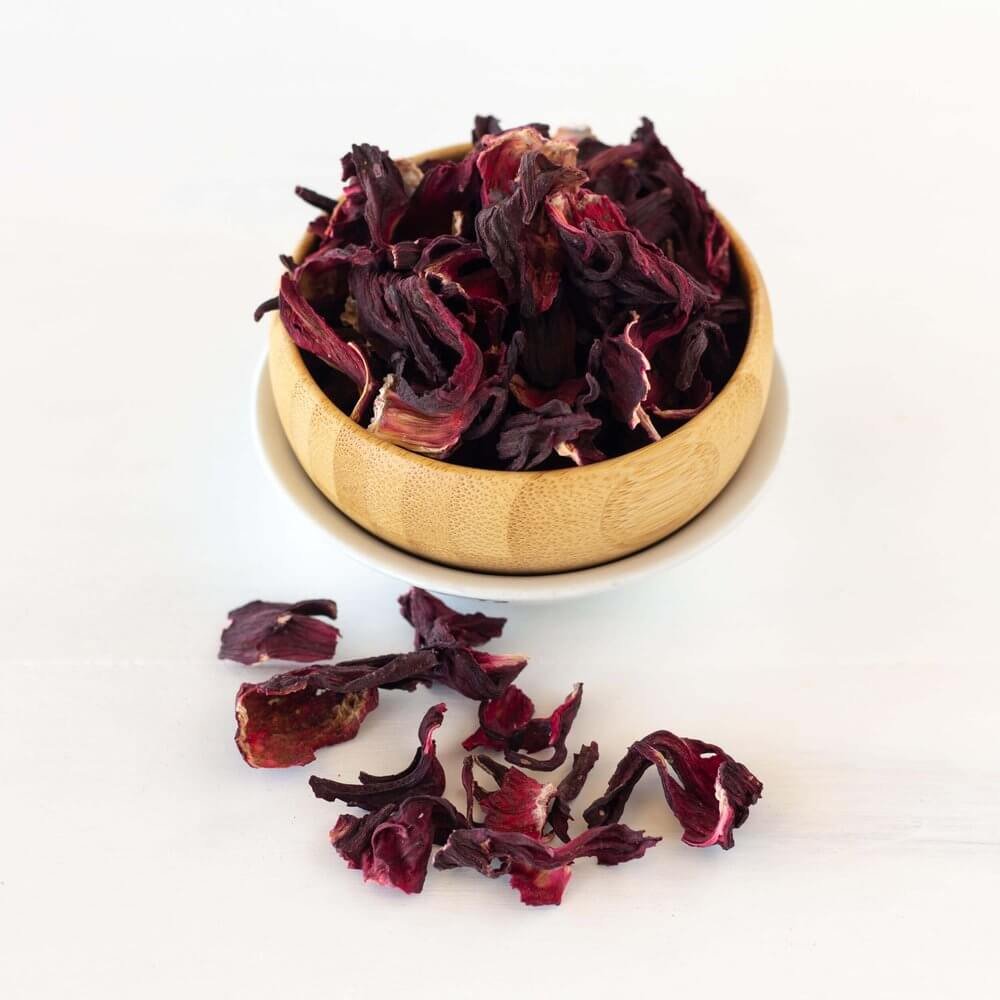
Table of Contents
-

 Benefits4 months ago
Benefits4 months agoThe Benefits of Joining Gym Lumolog – Improve Your Fitness & Health
-

 Food1 year ago
Food1 year ago10 + Benefits of carrot juice and side effects
-

 Health1 year ago
Health1 year ago50 Super Healthy (And Very Often Cheap) Foods
-

 Health1 year ago
Health1 year ago5 Shocking health benefits of kinkeliba and side effects
-

 Food1 year ago
Food1 year ago8 shocking benefits of leek juice and side effects
-

 Health1 year ago
Health1 year ago15 health benefits of soursop leaves tea and side effects
-

 Health1 year ago
Health1 year ago15 Benefits of lipton tea and side effects
-

 Health1 year ago
Health1 year agoBenefits of guava leaves Sensually









